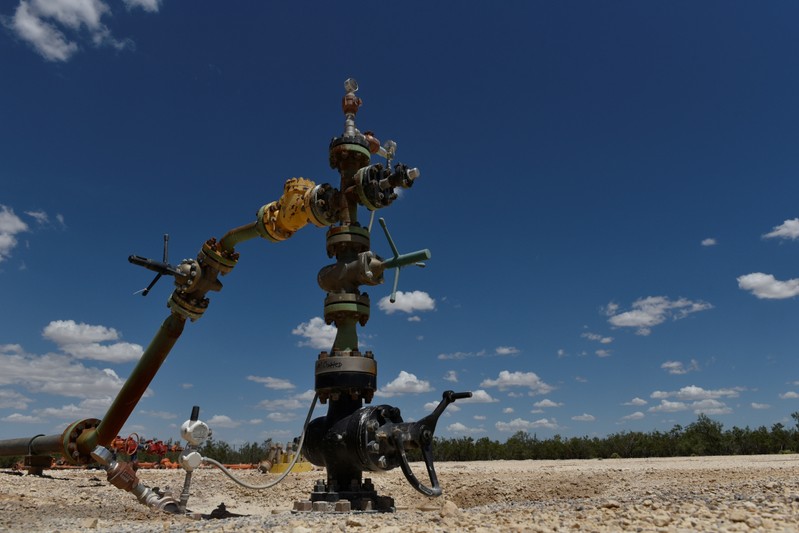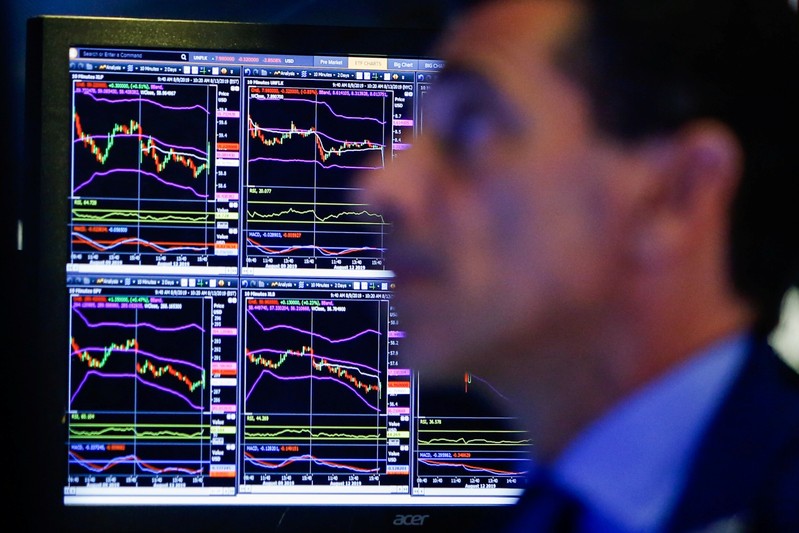
FILE PHOTO: A wastewater injection well owned by Parsley Energy operates in the Permian Basin near Midland, Texas U.S. August 23, 2018. REUTERS/Nick Oxford
August 16, 2019
TOKYO (Reuters) – Crude oil prices rose on Friday after two days of declines, buoyed following data showing a rise in U.S. retail sales helped ease some concerns about a recession in the world’s biggest economy.
Brent crude <LCOc1> was up 31 cents, or 0.5%, at $58.54 a barrel at 0047 GMT, after falling 2.1% on Thursday and 3% the previous day.
U.S. crude <CLc1> was up 43 cents, or 0.8%, at $54.90 a barrel, having fallen 1.4% the previous session and 3.3% on Wednesday.
U.S. retail sales rose 0.7% in July as consumers bought a range of goods even as they cut back on motor vehicle purchases, according to data that came a day after a key part of the U.S. Treasury yield curve inverted for the first time since June 2007 prompting a sell-off in stocks and crude oil.
An inverted Treasury yield curve is historically a reliable predictor of looming recessions.
“The robust U.S. economic data released overnight is providing some degree of comfort as it suggests a less gloomy U.S. domestic outlook and will walk back some of the more immediate recessionary concerns,” Stephen Innes, managing partner at VM Markets, said in a note.
Also helping sentiment were comments from U.S. President Donald Trump that negotiations with China on trade were “productive,” suggesting a possible easing of trade frictions that have roiled markets.
The price of Brent is still up nearly 10% this year thanks to supply cuts led by the Organization of the Petroleum Exporting Countries (OPEC) and allies such as Russia, a group known as OPEC+. In July, OPEC+ agreed to extend oil output cuts until March 2020 to prop up prices.
A Saudi official on Aug. 8 indicated more steps may be coming, saying “Saudi Arabia is committed to do whatever it takes to keep the market balanced next year”.
But the efforts of OPEC+ have been outweighed by worries about the global economy amid the U.S.-China trade dispute and uncertainty over Brexit, as well as rising U.S. stockpiles of crude and higher output of U.S. shale oil.
(Reporting by Aaron Sheldrick; Editing by Joseph Radford)

